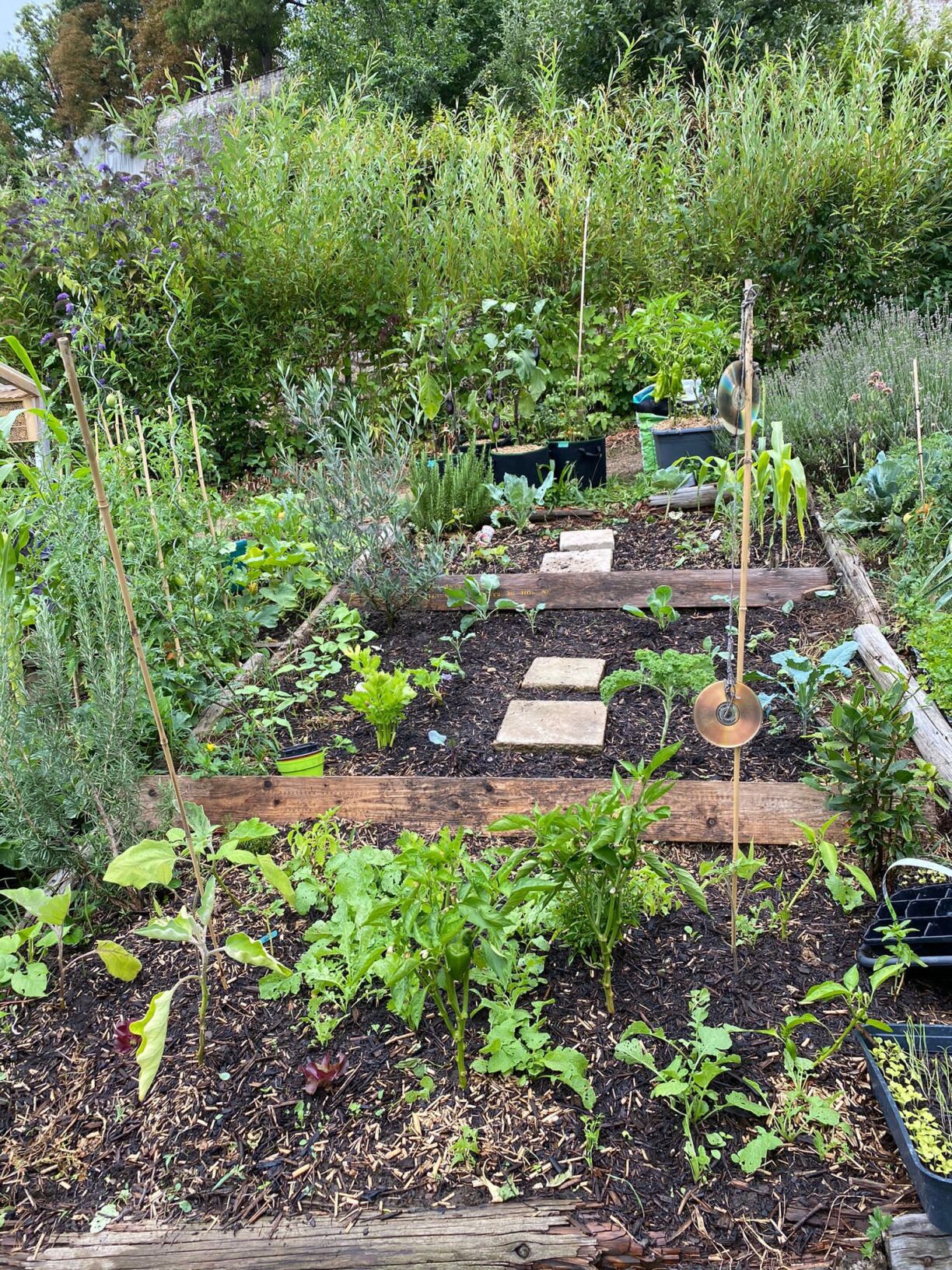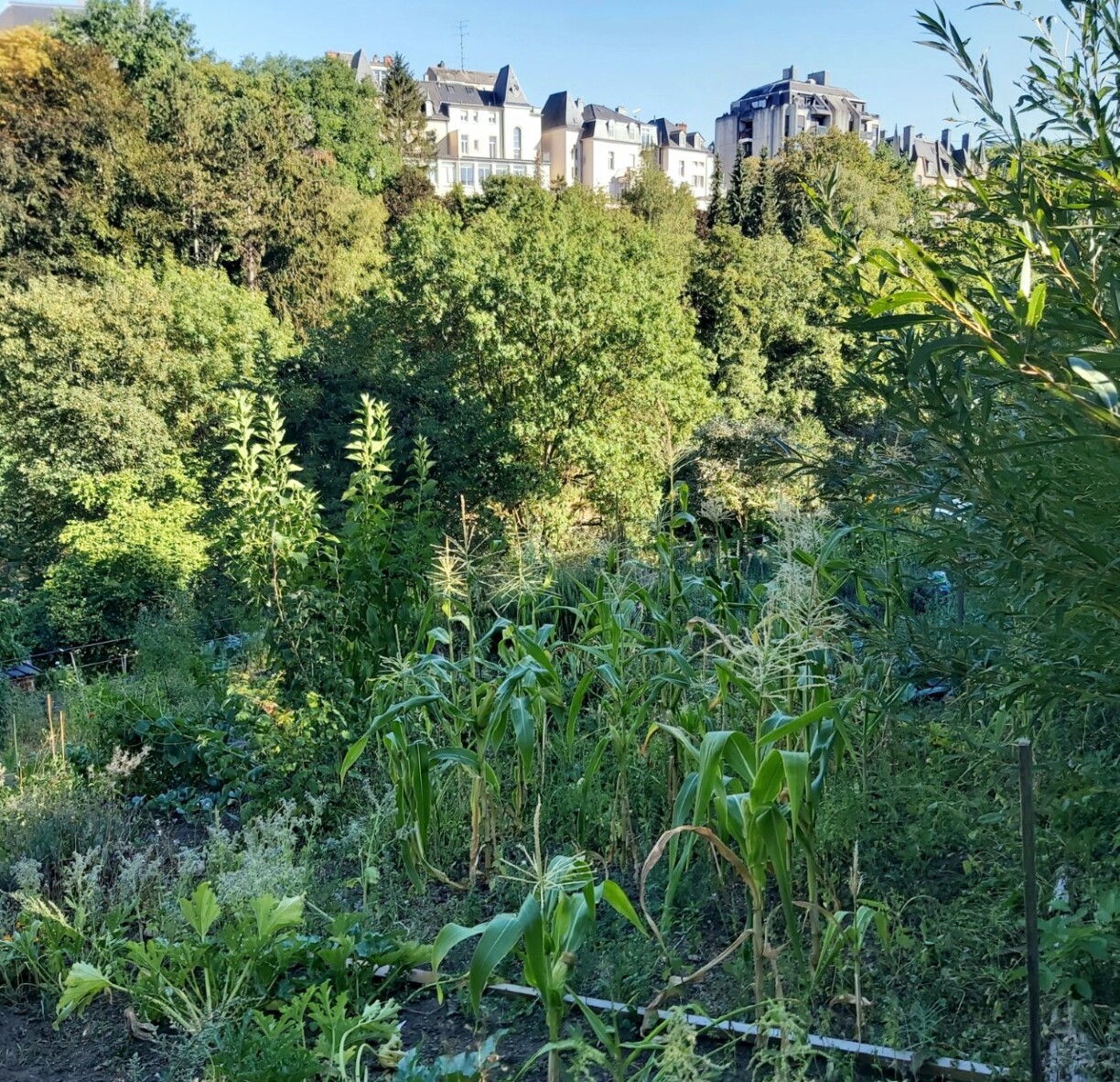
Located in the middle of the Pétrusse valley, there is a community garden only a few steps from the centre of Luxembourg. Alina, a 39-year-old education worker, welcomes us and shows us around this little corner of nature, with a breathtaking view of the valley. She passionately shares with us her experience in this community garden.
From a single community garden in 2011 to now more than twenty, the Grand Duchy is experiencing a real craze for these shared spaces. Membership prices vary, with contributions being used in particular to finance seeds and water consumption.

For about two years, Alina has been visiting the plot almost daily. For a long time she cultivated the shared part of the garden, but since July she has had her own little plot. She has always wished to live in a house with a garden, but for now she lives in a flat, she reveals.
Alina feeds herself with mainly vegetables from her garden. Cabbage, broccoli, spinach and aubergines are some of the vegetables she currently is harvesting. Everything is cultivated in permaculture, which means that the soil is not turned. One of the reasons for that is that there are lots of micro-organisms that will not survive if the soil is turned.
In recent years, with the various ecological, health and social upheavals, community gardens have attracted more and more participants from all backgrounds.
Fatima is part of the community garden in Hesperange. Like Alina, she too had to wait a long time to join. She mainly grows pumpkins, tomatoes and potatoes. Proud of her plot of land, which she pampers, she confides that her love for gardening was born very early, during her childhood in Portugal. When she would come home from school, she had to help out. As a teenager, she lost interest in gardening, but in the last few years she has rekindled her passion.
Marine, responsible for CELL’s Future project, manages the Piazza, a unique place in Esch-sur-Alzette. Her face is full of pride as she shows the community space she runs, as well as her garden. This community garden is very recent, it dates from February 2022, but more and more passers-by, initially hesitant, are beginning to venture there, curious to discover this greenhouse open to all.
This entirely upcycled garden, i.e. built from recycled materials, is mainly maintained by employees of associations that share the same building as Marine. They have all put their hands together to create this space, which hosts cultural events and gardening sessions. From experience to experience, Marine and the Piazza’s participants can learn from each other.
Alina knows these community gardens well. As a traveling gardener with CELL, she provides support to participants. CELL, she explains, is there to support the community gardens. It is an association that runs several transition projects.
The aim is to make the gardens autonomous, particularly through training. Karine, urban gardening coordinator at CELL, agrees, adding that there are plenty of sufficiently independent gardens that CELL does not need to support.
Alina confirms that more and more people are interested in these shared spaces. She thinks the main motivations are entirely for ecological reasons, as well as the Covid lockdown. Many wanted to get back to basics, to grow their own food.
Marine is convinced that being part of a community garden means making a commitment to the climate: ‘The garden is extremely political because we keep saying that humans need to get closer to nature. It’s important to be able to explain to children that tomatoes don’t grow in plastic trays, to show that the garden is in trouble because it’s too hot.’ Indeed, with the high temperatures and prolonged periods of drought this summer, Marine has noticed a growing awareness of climate issues.
For Fatima, the most important thing is to know what’s on her plate and that of her children: ‘We don’t know what we’re eating, I realised that I could change my life and that’s what I wanted to do, plant my own vegetables, it’s a passion.
‘Harvesting what you have grown yourself not only gives you a sense of satisfaction, but it makes you more aware of food waste, you really don’t want to throw away what you have grown’, says Alina.
Karine agrees: ‘If they stay, it’s really for ecological reasons. I think they become ambassadors of ecology.’
The community gardens, these flourishing places sometimes nestled in the heart of Luxembourg’s cities, are not about to fade away in the face of the enthusiasm that surrounds them. Alina, always looking for a way to contribute to change, believes it is essential to not lose hope and to continue to act.